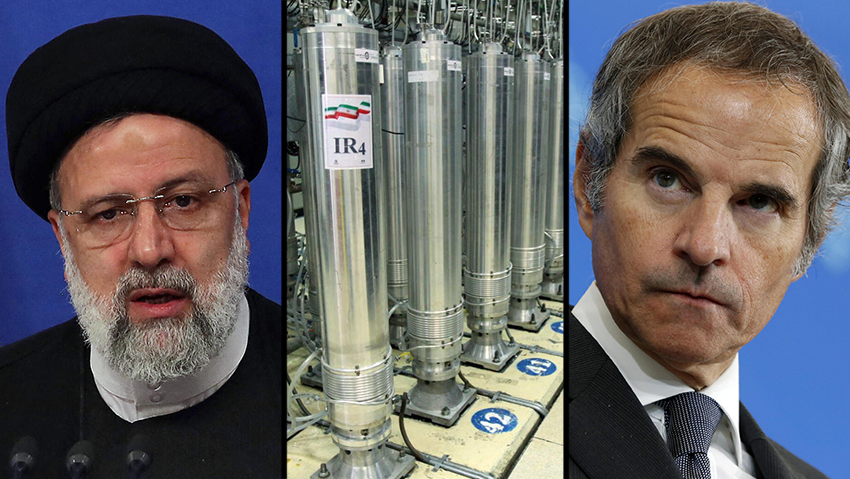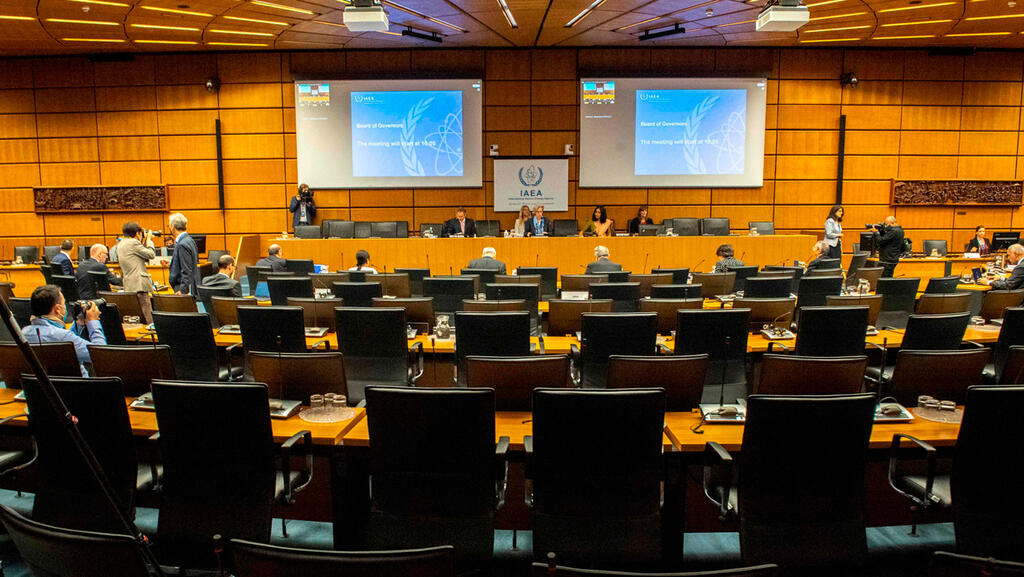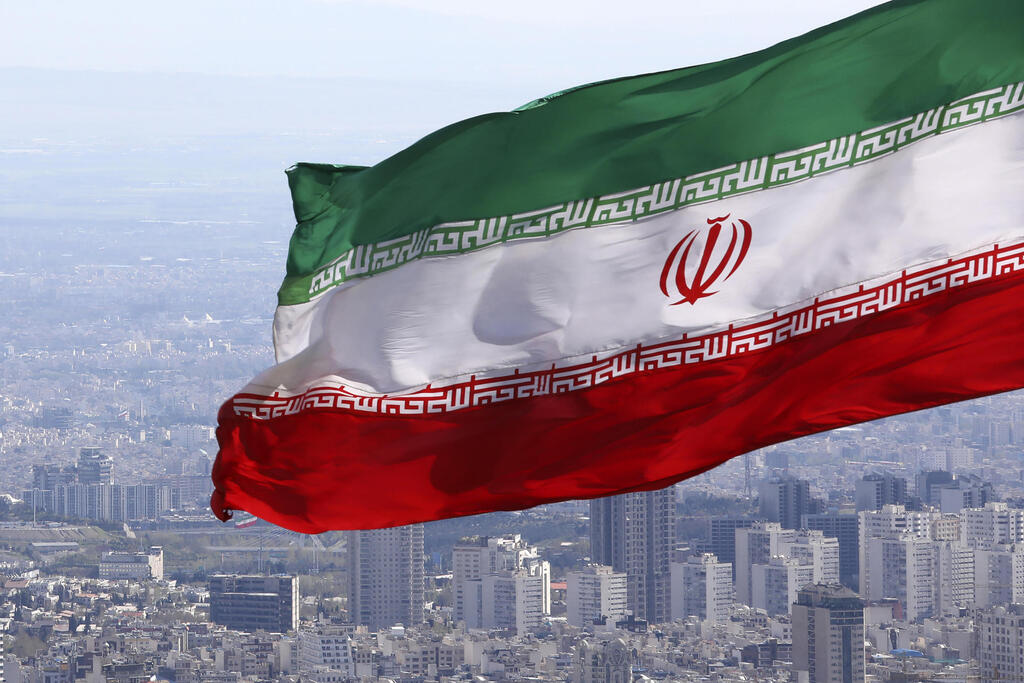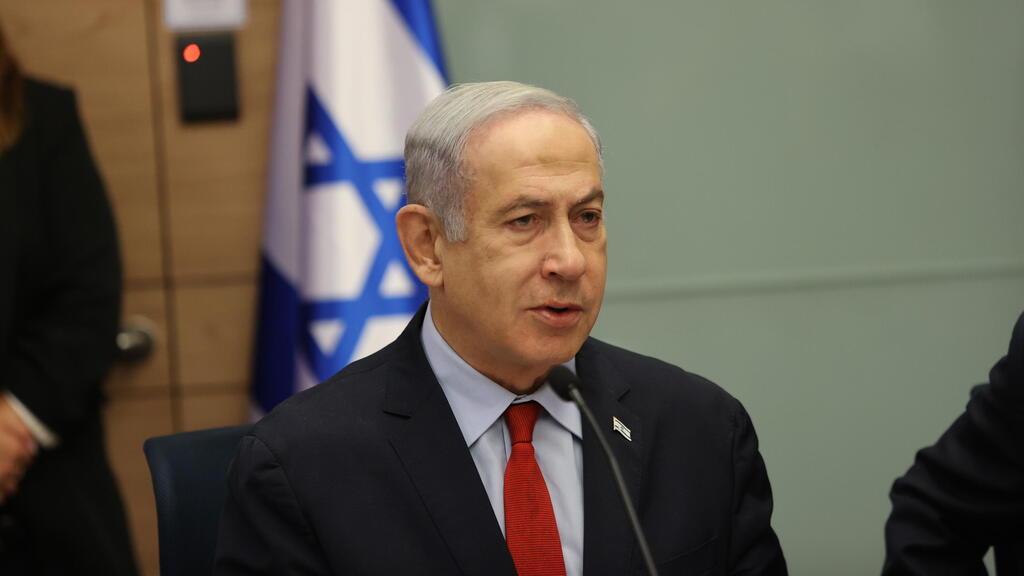Amid Iran's efforts to acquire components needed to construct a nuclear bomb, as was first revealed by Ynet, U.S. and EU representatives in the IAEA's Board of Governors expressed concern over Tehran's continued lack of cooperation with the agency on its nuclear program.
More stories:
The British Guardian reported Sunday that diplomats also expressed concern about the increasing voices among Iranian extremists supporting nuclear weapon production, alongside the instability caused by the Gaza war and the lack of oversight over Iran's nuclear program.
Iranian President Ebrahim Raisi recently claimed his country is currently only interested in a nuclear program for civilian uses. However, if Iran decides otherwise, amid the ongoing Gaza war, international legitimacy for military action against Iran will become impossible to acquire.
Israel's ability to carry out such an operation is also questionable, partly because the IDF is engaged deep within the Strip. The focus in the Israeli intelligence community now has less to do with the Iranian nuclear issue, which the Iranians use to their advantage.
During the quarterly meeting of the IAEA's Board of Governors last week, the U.S. and its European allies issued stern warnings about the possible threat coming from Iranian non-cooperation in this issue.
IAEA Director-General Rafael Grossi also acknowledged that the agency had lost "continuity of knowledge about the production and stock of centrifuges, rotors, heavy water and uranium ore concentrate," within Iran’s uranium enrichment facilities.
Russia's envoy to the IAEA, Mikhail Ulyanov, also warned that the situation is "full of danger," and "risks are getting out of control," but argued that most of the blame lies with the United States for withdrawing from the 2015 nuclear agreement with Iran.
Despite this, the United States didn’t seek to draft a consensual decision against Iran in the Board of Governors. According to diplomats who spoke with Reuters, this is due to the approaching U.S. elections set for November.
At the same time, Iran tends to perceive such decisions as a threat and responds with harsh measures, such as the deportation of experienced nuclear inspectors from the country, as it did last September.
“After years of unresolved questions related to the presence of nuclear material at undeclared locations in Iran, we cannot allow Iran’s current pattern of behavior to continue,” U.S. envoy to the IAEA Laura Holgate said.
She requested to receive a report dealing with Iran's compliance with its commitments regarding its nuclear program from IAEA Director-General Grossi, ahead of the Board of Governors’ meeting in June.
The Americans warned that should Iran not cooperate with the IAEA – including sharing information regarding the traces of uranium discovered at two unannounced nuclear sites in the country, they would take action at the next meeting.
Adding to diplomatic concerns is the warning from Gen. Michael Kurilla, commander of the U.S. Central Command, who said in a U.S. service committee last week that should Iran acquire nuclear weapons, "it’ll change the Middle East forever." Krieger added, “The key to deterrence is for Tehran to understand that this behavior will have consequences for it,” clarifying that “the deterrence is temporary.”
As reported by Ynet, Iran is forging ahead with its plan to build a nuclear warhead. Israel officials said rather than continuing their uranium enrichment, the Iranians were now working to obtain the elements needed to produce the warhead with "very concerning actions."
To build a nuclear bomb two things are needed. The first is plutonium or enriched military-grade uranium. The best way to thwart the Iranian plans is through uranium enrichment since Tehran signed the non-nuclear proliferation agreement and is prohibited from taking steps to enrich uranium without international oversight.
For that reason, Israel and its officials in the Mossad and the IDF have focused, according to international media reports, on efforts to slow down or stop uranium enrichment by Iran.
Amid great efforts, they slowed the enrichment process over years, until their attempts collapsed. Iran received the greatest gift from then-U.S. president Donald Trump who backed out of the 2015 nuclear deal.
Since then, rather than having the most effective supervision, Iran has been allowed to remove any restrictions placed on it. In 2024, there is no doubt of its ability to reach the military grade within the shortest time span.
The second element is the ability to load the uranium (or plutonium) on a military device that can create the chain reaction needed to detonate the bomb. This requires knowledge and technical ability, and also components such as accurate detonators. It is estimated that Iran is one to two years away from achieving that objective.





